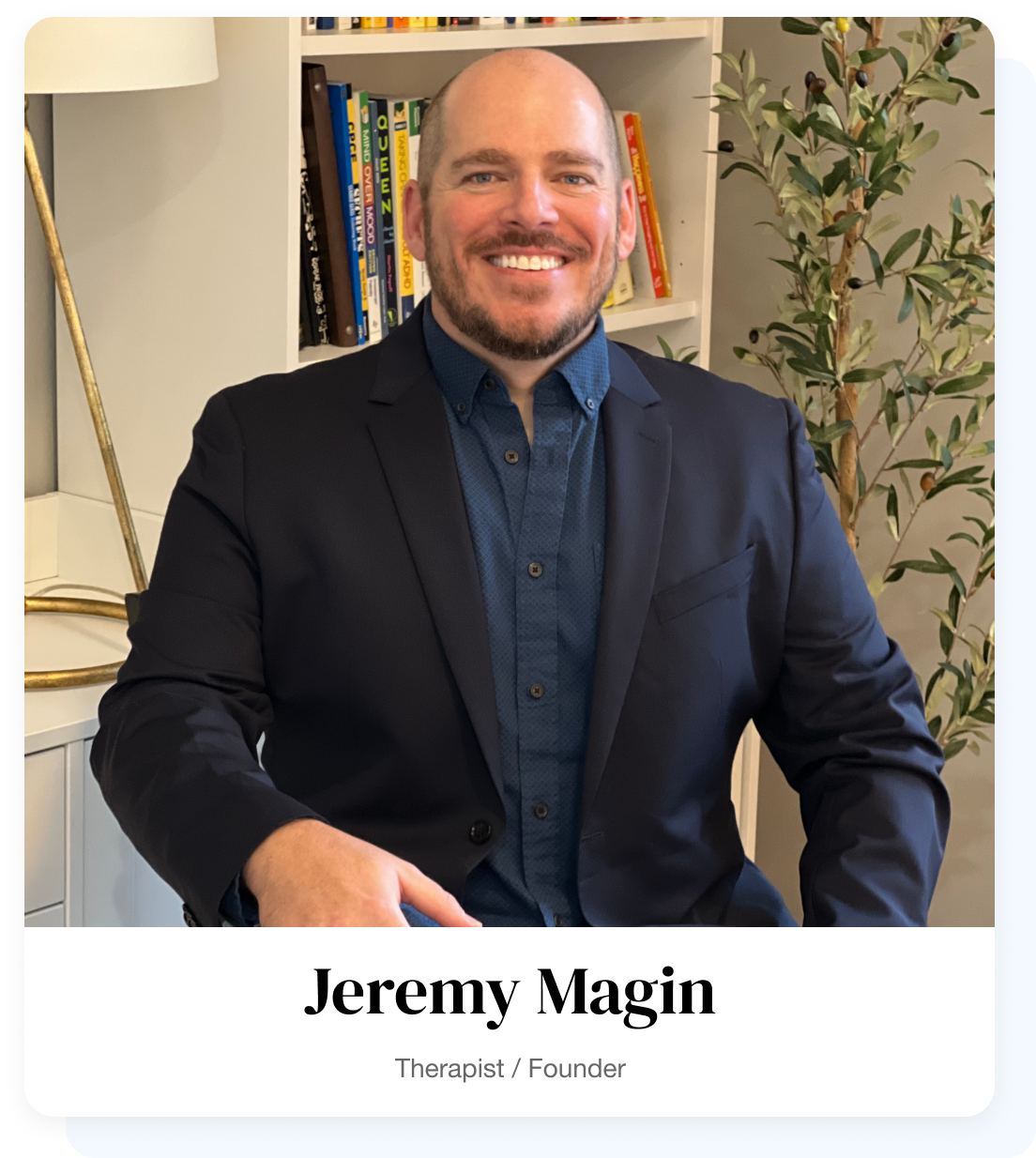Accepting In-Person & Telehealth Appointments Now
ADHD THERAPY
ADHD Therapy In Denver
ADHD, which stands for attention deficit hyperactivity disorder, is a common neurodevelopment disorder. While it's usually diagnosed in childhood, many people don't discover they have ADHD until later in life.
In recent years, mental health professionals have shifted how they address ADHD. With further understanding of this neurotype, individuals with ADHD can get further help with management and treatment, and they can also further understand ADHD to improve their quality of life.
If you live in the Denver area and need ADHD therapy, OneLife Counseling is here to help. Therapist Jeremy Magin is an experienced mental health professional who provides ADHD treatment to teens and adults.
Call today to learn more about effective treatment options or read on to learn more about ADHD treatment options.
At OneLife Counseling, Jeremy Magin offers compassionate counseling services to teens, young adults, adults, and couples in the Denver, CO, community. No matter what kind of major life change you're going through, we're here to help.
"My approach is all about you, so I partner with you to craft a therapy plan that meets your needs for mental and emotional health. Learn more about life transitions therapy options by reaching out today."
- Jeremy
Denver ADHD Therapy
-
What Is Attention Deficit Hyperactivity Disorder?
ADHD, or attention deficit hyperactivity disorder, commonly impacts or gets diagnosed in children, but more teens and adults are becoming aware of how ADHD impacts their life.
I was diagnosed with ADHD myself at the age of 35 so I am vary familiar with the diagnosis and treatment process.
While ADHD is still classified as a mental disorder, it's also classified as a neurotype difference. This means it's a bit different than something like anxiety or depression.
While these are mental health conditions that are caused by hormonal, chemical, or environmental changes, ADHD seems, in many ways, to be a developmental thing.
This means, ADHD therapy is mainly focused on managing symptoms and improving quality of life, not curing ADHD.
-
What Is Neurodivergence?
Neurodivergence is a non-medical term, but it's one you might have heard about before.
It's a term gaining popularity amongst many individuals and even mental health professionals. It refers to people who have brains that developed and function differently.
Neurodivergence can refer to many different mental health and brain disorders and concerns, but it's often talked about in reference to ADHD and autism.
Many people with ADHD and other conditions use the term neurodivergence to raise awareness.
For some people, ADHD and other types of neurodivergence is considered a disability, but this can depend on the severity of the condition and how it impacts daily life.
-
Types Of ADHD
There are three main types of ADHD, but everyone with ADHD is unique. Symptoms may overlap or different from person to person, but these are the general subtypes:
- Inattentive - ADHD symptoms for those with inattentive type include making many careless mistakes, difficulties staying on task, troubles with paying attention, being easily distracted, losing things often. For inattentive type, patients must have most of these symptoms and little symptoms associated with hyperactive-impulsive ADHD.
- Hyperactive-impulsive ADHD looks quite a bit different than inattentive type. Symptoms of this kind of ADHD include frequent squirming, fidgeting, talking, and interrupting. People with this kind of ADHD may have difficulty keeping still or relaxing. For this type, patients need to have a majority of these symptoms and very few symptoms of inattentive type.
- Combined - Finally, there is combined type ADHD. This is the most common type of ADHD. People with combined type will have symptoms of both.
-
Coping Strategies For ADHD
ADHD can greatly impact your daily life. You may find it difficult to remember daily tasks or find that hyperactivity makes it challenging to hold down jobs.
While each person with ADHD is unique, behavior therapy and behavioral treatment for adults with ADHD centers around finding coping strategies to help you create a healthy lifestyle.
Some helpful strategies adult patients can learn in therapy to manage and treat ADHD include:
- Developing structure and habits: By improving organization skills, you can better manage ADHD and see symptom reduction.
- Learning better time management: Many people with ADHD struggle with time management. Therapy can assist you as you create a schedule.
- Finding healthy outlets: By learning positive behaviors, you can better express yourself without negatively impacting your life.
- These are just some of the things you can learn with an experienced ADHD therapist.
-
Options For Treating ADHD
When you think of treating ADHD, one of the first things that comes to mind might be ADHD medication.
While medication is very helpful to many people, it's not the only way to address and manage ADHD.
A combination of mediation and therapy is helpful for many people, while others prefer to use coping strategies and not medication.
-
ADHD & Anxiety Disorders
Some people with ADHD also have other mental health issues that make treatment more complicated.
Other psychiatric disorders that commonly impact adults with ADHD include anxiety, depression, learning disabilities and OCD.
ADHD symptoms can also be mistaken for other mental health disorders, such as borderline personality disorder.
So, it's vital to see a trained mental health professional who can help you with a correct diagnosis and effective treatment.
Let's talk!
This is a paragraph. Writing in paragraphs lets visitors find what they are looking for quickly and easily.
This is a paragraph. Writing in paragraphs lets visitors find what they are looking for quickly and easily.
This is a paragraph. Writing in paragraphs lets visitors find what they are looking for quickly and easily.
This is a paragraph. Writing in paragraphs lets visitors find what they are looking for quickly and easily.
This is a paragraph. Writing in paragraphs lets visitors find what they are looking for quickly and easily.
Jane Faber, New York
This is a paragraph. Writing in paragraphs lets visitors find what they are looking for quickly and easily.
This is a paragraph. Writing in paragraphs lets visitors find what they are looking for quickly and easily.




